 W
WEgon Börger is a German-born computer scientist based in Italy.
 W
WAlberto Broggi is General Manager at VisLab srl and a professor of Computer Engineering at the University of Parma in Italy.
 W
WFabrizio Capobianco is an Italian serial entrepreneur based in Silicon Valley. He currently serves as Chief Innovation Officer at Minerva Networks. He was the founder and CEO of the sports social network TOK.tv and he also serves as Chairman of Funambol, a white-label “personal cloud” provider he founded.
 W
WLuca Andrea Cardelli FRS is an Italian computer scientist who is a Research Professor at the University of Oxford in Oxford, UK. Cardelli is well known for his research in type theory and operational semantics. Among other contributions, he helped design Modula-3, implemented the first compiler for the (non-pure) functional programming language ML, and defined the concept of typeful programming. He helped develop the Polyphonic C# experimental programming language.
 W
WNicolò Cesa-Bianchi is a computer scientist and Professor of Computer Science at the Department of Computer Science of the University of Milan.
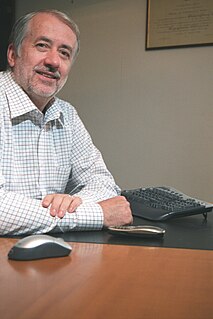 W
WLeonardo Chiariglione is an Italian engineer. He has been at the forefront of a number of initiatives that have helped shape media technology and business as we know them today, in particular he was the chairman of, and co-founded the Moving Picture Experts Group (MPEG) together with Hiroshi Yasuda.
 W
WPierluigi Crescenzi is a full professor of computer science at the Gran Sasso Science Institute. His research areas include theoretical computer science and computer science education. He has been teaching at Sapienza University of Rome, University of Florence and Université Paris Diderot.
 W
WRoberto Di Cosmo is a computer scientist and director of IRILL, the Innovation and research initiative for free software.
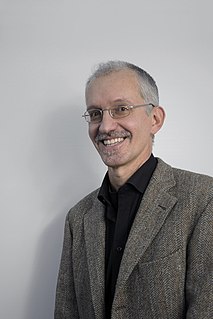 W
WMarco Dorigo is a research director for the Belgian Funds for Scientific Research and a co-director of IRIDIA, the artificial intelligence lab of the Université Libre de Bruxelles. He is the proponent of the ant colony optimization metaheuristic, and one of the founders of the swarm intelligence research field. Recently he got involved with research in swarm robotics: he is the coordinator of Swarm-bots: Swarms of self-assembling artefacts and of Swarmanoid: Towards humanoid robotic swarms two swarm robotics projects funded by the Future and Emerging Technologies Program of the European Commission. He is also the founding editor and editor in chief of Swarm Intelligence, the principal peer reviewed publication dedicated to reporting research and new developments in this multidisciplinary field.
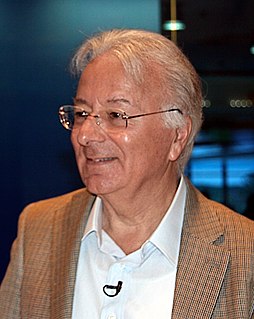 W
WFederico Faggin is an Italian-American physicist, engineer, inventor and entrepreneur. He is best known for designing the first commercial microprocessor, the Intel 4004. He led the 4004 (MCS-4) project and the design group during the first five years of Intel's microprocessor effort. Faggin also created, while working at Fairchild Semiconductor in 1968, the self-aligned MOS (metal–oxide–semiconductor) silicon-gate technology (SGT), which made possible MOS semiconductor memory chips, CCD image sensors, and the microprocessor. After the 4004, he led development of the Intel 8008 and 8080, using his SGT methodology for random logic chip design, which was essential to the creation of early Intel microprocessors. He was co-founder and CEO of Zilog, the first company solely dedicated to microprocessors, and led the development of the Zilog Z80 and Z8 processors. He was later the co-founder and CEO of Cygnet Technologies, and then Synaptics.
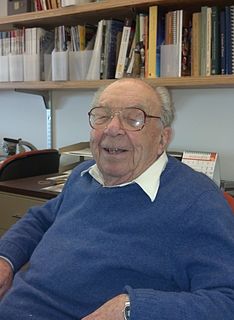 W
WRoberto Mario "Robert" Fano was an Italian-American computer scientist and professor of electrical engineering and computer science at the Massachusetts Institute of Technology.
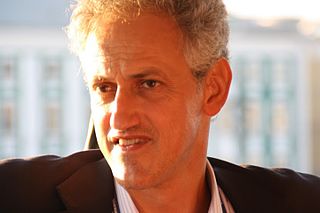 W
WGiuseppe Francesco (Pino) Italiano is an Italian computer scientist. He is a professor of computer science at LUISS University in Rome. He is known for his work in graph algorithms, data structures and algorithm engineering.
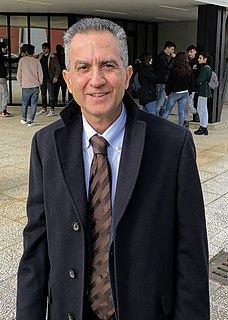 W
WNicola Leone is an Italian computer scientist who works in the areas of artificial intelligence, knowledge representation and reasoning, and database theory. Leone is currently the rector of the University of Calabria and a professor of Computer Science. Previously, he was a professor of Database Systems at the TU Wien.
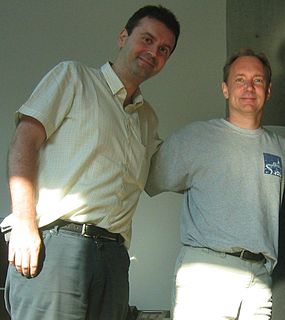 W
WMassimo Marchiori is an Italian mathematician and computer scientist.
 W
WAlex Martelli is an Italian computer engineer and Fellow of the Python Software Foundation. Since early 2005, he works for Google, Inc. in Mountain View, California, for the first few years as "Über Tech Lead," then as "Senior Staff Engineer," currently in charge of "long tail" community support for Google Cloud Platform.
 W
WFilippo Menczer is an American and Italian professor of informatics and computer science who is the former director at the Center for Complex Networks and Systems Research, a research unit of the Indiana University School of Informatics, Computing, and Engineering. He holds courtesy appointments in Cognitive Science and Physics, is a founding member and advisory council member of the IU Network Science Institute, a senior research fellow of the Kinsey Institute, and a fellow of the Center for Computer-Mediated Communication, and a former fellow of the Institute for Scientific Interchange in Turin, Italy. In 2013 he was named a Distinguished Scientist of the ACM.
 W
WSilvio Micali is an Italian computer scientist at MIT Computer Science and Artificial Intelligence Laboratory and a professor of computer science in MIT's Department of Electrical Engineering and Computer Science since 1983. His research centers on the theory of cryptography and information security.
 W
WEugenio Moggi is a professor of computer science at the University of Genoa, Italy.
 W
WPietro Perona is the Allan E. Puckett Professor of Electrical Engineering and Computation and Neural Systems at the California Institute of Technology and director of the National Science Foundation Engineering Research Center in Neuromorphic Systems Engineering. He is known for his research in computer vision and is the director of the Caltech Computational Vision Group.
 W
WPier Giorgio Perotto was an Italian electrical engineer and inventor. Working for the manufacturer Olivetti, he led a design team that built the Programma 101, one of the world’s first programmable calculators.
 W
WRoberto Pieraccini is an Italian and US electrical engineer working in the field of speech recognition, natural language understanding, and spoken dialog systems. He is currently Director of Engineering at Google in Zurich, Switzerland, within the Google Assistant organization. He has been an active contributor to speech research and technology since 1981.
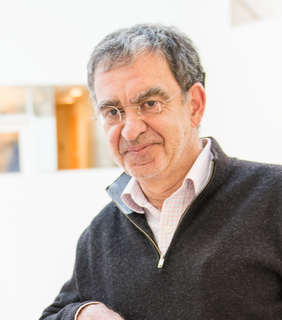 W
WTomaso Armando Poggio, is the Eugene McDermott professor in the Department of Brain and Cognitive Sciences, an investigator at the McGovern Institute for Brain Research, a member of the MIT Computer Science and Artificial Intelligence Laboratory (CSAIL) and director of both the Center for Biological and Computational Learning at MIT and the Center for Brains, Minds, and Machines, a multi-institutional collaboration headquartered at the McGovern Institute since 2013.
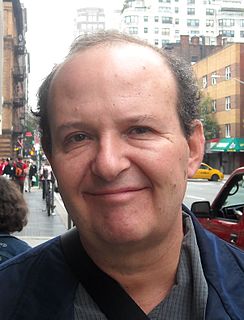 W
WGiulio Prisco is an Italian information technology virtual reality consultant; as well as a writer, futurist, and transhumanist. He is an advocate of cryonics and contributes to the science and technology online magazine Tendencias21. He produces teleXLR8, an online talk program using virtual reality and video conferencing, and focused on highly imaginative science and technology. He writes and speaks on a wide range of topics, including science, information technology, emerging technologies, virtual worlds, space exploration and futurology. Prisco's ideas on virtual realities, technological immortality, mind uploading, and new scientific religions are extensively featured in the OUP book "Apocalyptic AI - Visions of Heaven in Robotics, Artificial Intelligence, and Virtual Reality".
 W
WFrancesca Rossi is an Italian computer scientist, doing research in artificial intelligence. She is a full professor at the University of Padua. She is the president of the International Joint Conference on Artificial Intelligence and is Associate Editor in Chief of the Journal of Artificial Intelligence Research.
 W
WAndrew James Viterbi is an American electrical engineer and businessman who co-founded Qualcomm Inc. and invented the Viterbi algorithm. He is currently Presidential Chair Professor of Electrical Engineering at the University of Southern California's Viterbi School of Engineering, which was named in his honor in 2004 in recognition of his $52 million gift.
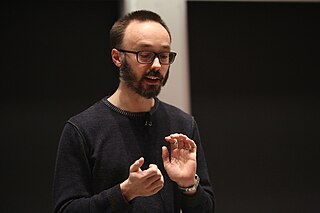 W
WStefano Zacchiroli is an Italian and French academic and computer scientist who lives and works in Paris, and a former Debian Project Leader, a position in which he served from April 2010 to April 2013. Succeeding Steve McIntyre, he was himself preceded by Lucas Nussbaum in an election where he himself was no longer a candidate. Zacchiroli became a Debian Developer in 2001. After attending LinuxTag in 2004, he became more involved in the Debian community and the project itself.